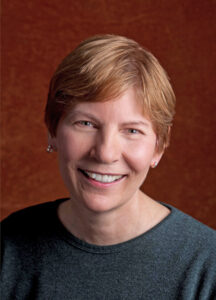By Kathy Berken
Some 20 years ago a fellow retreatant walked up to me and said just these two words, “Surreptitious surrender.” It was part of an exercise where after prayerful reflection, we were to tell a random participant two words. I’ve pondered this phrase often.

Then, just a few weeks ago, a friend told me that the word “surrender” might be a good thing to contemplate as I go through my cancer/chemo months. Once again, time for reflection.
We talk about fighting cancer, battling the disease, becoming a survivor rather than victim, entering headlong into the fear, standing up to the forces against us, facing the problem, and jumping into the fray. Those are not signs of surrender. Those are signs of being active, pro-active, involved.
But we also talk about giving it all over to God, letting God take care of us, admitting the truth about our situation, being honest, offering no resistance, surrendering, relaxing into it and going with the flow.
Which is the way of God? It depends on the person. Each of us will have a way that is best for us to grow and learn from our individual situations. I learn from my experiences along the way. I feel as if I’m on a river, and I respond to what appears before me. I’m not sure I go out looking for things, but when I feel something stir inside of me, then I know I need to pay attention to it and act. I’m experiencing effects from my mastectomy, ongoing bilateral reconstruction and, worst of all, the chemotherapy/drug regimen that will last another year or more.
Reflecting on my 64 years of life, I’m pretty sure I will be a better and stronger woman because of it. If I’ve learned anything, there is no wisdom in suffering for its own sake, no honor in glorifying the pain, no benefit in preaching the virtues of living on this side of hell. None.
But then, after Pope Francis met with members of the Apostolate of the Suffering and with the Silent Workers of the Cross last month, he said there were right and wrong ways to live with pain and suffering. Well, that got my attention. He said, “A wrong attitude is to live pain in a passive manner, letting go with inertia and resignation. Even the reaction of rebellion and rejection is not a correct attitude. Jesus teaches us to live the pain by accepting the reality of life with trust and hope, bringing the love of God and neighbor, even in suffering: and love transforms everything.”
Ideally, the pope is correct, but, with all due respect, I think he puts the cart before the horse. It’s not our role as apostolic caregivers to tell anyone how they ought to suffer correctly. Imagine yourself in that scenario. I know, you’d have your back up, too, just as I did. No, the message is not for the suffering, it is for those who care about them to accept the reality of life, to trust God, to bring the love of God to all, and that will transform the caregivers among us, and we will transform the world, one person at a time. The lesson I’ve learned at the L’Arche community in Clinton as well as what I’m learning now from my own caregivers as I’m back on the other side again, is that those who suffer don’t need preaching to, they need to be loved. The works of mercy are our guide. Make them a pot of soup, bring them a blanket, take them to the doctor, listen to their stories, just be yourself with them, and above all, learn from your relationship with them how you are growing spiritually, how God is transforming you, what you still need to learn. And never preach, except to yourself, surreptitiously surrendering to God’s love.
The Dalai Lama once said, “The period of greatest gain in knowledge and experience is the most difficult period of one’s life.”
This will be true only if we tune up our awareness of the possibility for growth, so we can come to that moment of discernment when we can truly say, “Yeah, I think I finally get it.” Hard work? Absolutely? But who among us has not looked back and said, “I would not trade what I learned from that experience for anything.” Have the experience again? No. But the learning? Yes. God is with us. Emmanuel.








